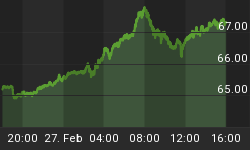
There is a new campaign to end austerity. First, the IMF lets it be known it has second thoughts about it; then we are told the threshold of 90% government debt to GDP which must not be crossed, set by Professors Reinhart & Rogoff, is based on an excel spread-sheet error. Lastly, Bill Gross of PIMCO, the largest bond fund in the world, tells us austerity is not working.
The new mood is spreading, to the relief of beleaguered countries like Spain and Italy. Austerity is painful, and politicians don't like it because it makes them unpopular. Nor do Keynesian and monetarist economists, who see its failure as justification for more intervention.
Austerity, as practised by Western governments, involves maintaining public spending at the cost of the private sector. It is therefore hardly surprising that it leads to the destruction of the wealth-creation necessary to support government finances. Its only, if questionable virtue, is statistical: the maintenance of government spending ensures that its share of GDP does not fall, thereby not undermining "growth". But government spending is simply a constraint on the productive private sector, because any economic resource diverted from it to pay for government is effectively squandered.
If an economy is to progress at all, there has to be as much austerity as possible, aimed squarely and solely at the government sector. Give individuals and businesses a lighter tax burden, the result of smaller government, and economic prospects will rapidly improve. Instead, the new anti-austerity mood will translate into a new licence for governments to relax their spending restraints.
Anyway, central banks including the ECB have shown they are ready to underwrite government spending if the markets are not prepared to, at almost zero interest cost. This explains why the yield on Italian debt, for example, has fallen despite the political drift of its non-government away from spending restraint.
One reason this is tolerated by bond investors such as PIMCO is the simple assumption that inflation is only a problem if there is a pick-up in demand. With all major economies either slowing or moving into recession that fear is increasingly remote. But history tells us this is a mistake, and that prices are capable of rising even in a recession, and a proper understanding of price theory also demonstrates the falsity of the assumption.
For the moment, ordinary people and their banks are showing a preference for money over goods, and have been since the banking crisis five years ago, which is why demand remains subdued. However, increasing risks to bank deposits from bank failures are likely to trigger a flight into physical cash and goods. And with economies all over the world stalling under the burden of the cost of government, this risk to banks and bank deposits is both increasing and becoming more immediate.
Complacency over inflation and interest rates also has to face the new impetus given to the expansion of the money supply implied by the abandonment of austerity. And this is merely another reason for monetary expansion, added to all the others. What we are seeing played out in front of us is no more than the compelling political reasons behind nearly every hyperinflation in modern history, which will almost certainly end in the collapse of today's paper currencies.















